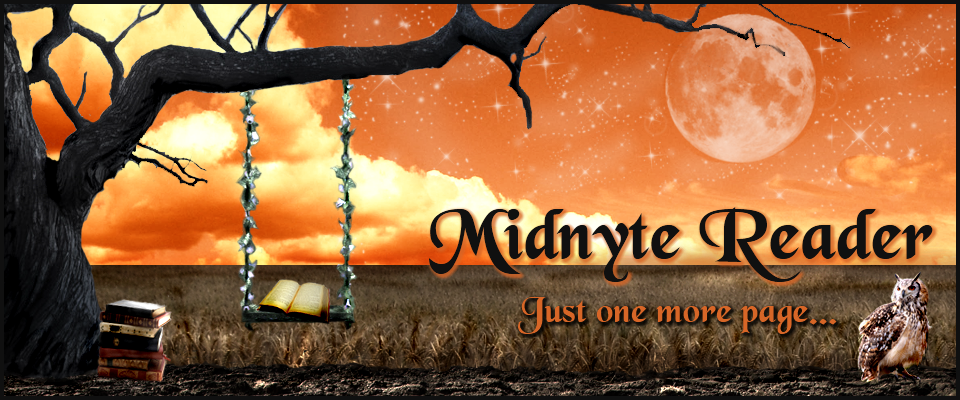Back in her room, she was about to start unpacking her suitcase, trying hard not to think about Liam or the gift she’d turned down, when a scream came from the room next door.
Sophie jumped up, yanked the door open and peered out. Several other girls had done the same.
Becky stood outside her room, both hands held to her mouth, eyes stretched open in horror, fingers clawing at her head like the character in that painting, The Scream. All the blood had drained from her face. Her bulky pink suitcase lay at her feet. She was staring at the room like there was a monster inside. Or a corpse. She made little gibbering noises, unformed words, like the sound of her sanity shattering into tiny fragments.
Sophie reached her first. ‘What is it?’ she asked in a soothing voice. ‘What’s happened?’
‘My. Room.’ That was all Becky could say. She pointed a shaking finger at the closed door then sank to her haunches. She stared up at Sophie, her eyes empty. What had she seen in that room? Sophie didn’t want to know.
Two other girls had reached them, Jenny and Ameera, the latter crouching and putting an arm around Becky, who was making the awful noises again, noises that penetrated Sophie’s skull, made the inside of her head itch. Sophie guessed that not many people had returned yet or the whole corridor would be filled with gawping, concerned students.
‘Go on,’ Jenny said. ‘Take a look.’
Sophie turned to her. ‘Me?’
When she realised no one else was going to make a move, she approached the door, gripped the handle and pushed it open slowly, sticking her head inside then immediately withdrawing it.
‘Oh, God, it stinks in there.’
‘What of?’ Jenny asked, clamping her hand over her nose as the smell escaped the room and reached them.
It smelled like a cut she’d once had that became infected, sweet and rotten.
‘What did you see?’ whispered Ameera.
Sophie had been hit so hard by the stench that her other senses hadn’t kicked in. She moved back towards the door and pushed it open.
‘Oh, my God,’ said Jenny, as Becky began to wail.
All the clothes and possessions that Becky had left behind were strewn around the room – clothes and underwear on the floor, CDs and books smashed and ripped and scattered. A large cuddly rabbit lay in the middle of the floor, its belly slit open, stuffing bulging out. Its eyes had been pulled out and there was a vibrator stuck into one of the holes, still buzzing. Photos of Becky which were stuck to the wall had been defaced – devil’s horns drawn on her head, red pen slashes across her face. A family photo had been torn to shreds and a picture of a woman who was clearly Becky’s mum had been rendered obscene, saggy breasts and a dense pubic triangle drawn over her clothes, a crudely rendered penis spurting close to her lips.
That was far from the worst of it.
A washing line had been strung across the room, tied to the wardrobe handle at one end and attached to a nail in the wall at the other. Dead mice had been attached to it by their tails, their plump white bodies hanging motionless, little black eyes open, staring sightlessly. Their stomachs had been slashed open like the rabbit toy beneath them. Stepping closer, forcing herself to confront the horror, Sophie could see that wire had been wrapped around the tails and the washing line to pin them to it. There were seven of them.
‘I’ll call Security,’ Jenny said quietly from the corridor.
Sophie looked back. Becky sat on the floor, arms wrapped around her legs, rocking back and forth, her expression glazed and slack. Her sleeves were pulled up and Sophie was shocked to see scars criss-crossing Becky’s forearms. She realised she had never seen Becky in short sleeves. There were no fresh cuts but the scars were evidence that Becky had, at one point, self-harmed.
‘Take Becky to the kitchen, give her something to drink.’
The other two girls nodded and led Becky away, leaving Sophie on her own in the room, trying not to look at the dead mice, focusing on the bed.
Photos of Becky and Lucas lay on the pillow, ripped in two. A used condom lay unfurled on the quilt, apparently still containing sperm. She turned her head away. Someone had scrawled words on the mirror in red lipstick.
SLUT. BITCH. SLAG.
DIE IN PAIN.
Small words designed to cause maximum pain.
Next to them were more photos, dim and underexposed, of Becky pressed up against a wall, face screwed up, a man entering her from behind.
Sophie left the room. Her head felt light, legs shaky. The urge to be sick bubbled up through her but she fought it. A minute later, one of the caretakers arrived along with a security guy. Sophie drifted away towards her room. She wasn’t going to be sick. She wasn’t. She had a horrible feeling about who had done this. She remembered hearing Liam say that Becky needed to be taught a lesson, recalled Jasmine’s threat to Becky after she revealed her identity.
No. Surely not. Liam was a self-proclaimed rebel, but she couldn’t believe he would do something this hateful. Beneath the pose, he was a nice guy. She had to believe that. Jasmine too. She could be hot-headed, had told Becky she’d cut her tongue out, but there was no way she would do this, surely?
It had to be Lucas, Becky’s betrayed boyfriend. Apart from seeing his band play once at the Student Union she didn’t know him very well, but he came across as pretty intense on stage, his lyrics all about S&M and suicide. She had thought that was just him playing at being a rock star but maybe it went deeper. And besides, jealousy could turn the mildest people into monsters. The room was full of vile sexual imagery, including the shots exposing Becky’s betrayal of Lucas, plus naked photos that had probably been taken for Lucas’s benefit. Everything in the room spoke of revenge for Becky’s betrayal of her boyfriend. It had to be him.
Excerpted from THE DEVIL'S WORK © Copyright 2016 by Mark Edwards. Reprinted with permission. All rights reserved.
About The Devil's Work by Mark Edwards
A gripping psychological thriller from the bestselling author of Follow You Home and The Magpies.
About The Devil's Work by Mark Edwards
A gripping psychological thriller from the bestselling author of Follow You Home and The Magpies.
It was the job she had dreamed of since childhood. But on her very first day, when an unnerving encounter drags up memories Sophie Greenwood would rather forget, she wonders if she has made a mistake. A fatal mistake.
What is her ambitious young assistant really up to? And what exactly happened to Sophie’s predecessor? When her husband and daughter are pulled into the nightmare, Sophie is forced to confront the darkest secrets she has carried for years.
As her life begins to fall apart at work and at home, Sophie must race to uncover the truth about her new job…before it kills her.
About Mark Edwards
Mark Edwards writes psychological thrillers in which terrifying things happen to ordinary people. His first solar novel, The Magpies (2013), reached the No. 1 spot on Amazon UK as did his third novel Because She Loves Me (2014). He has also co-written various crime novels with Louise Voss such as Killing Cupid (2011) and The Blissfully Dead (2015).
Mark grew up on the south coast of England and started writing in his twenties while working in a number of dead-end-jobs. He lived in Tokyo for a year before returning to the UK and starting a career in marketing. As well as a full-time-writer, Mark is a stay at home dad for his three children, his wife and a ginger cat.
Website: www.markedwardsauthor.com
Twitter: @mredwards
Facebook: https://www.facebook.com/markedwardsbooks
What is her ambitious young assistant really up to? And what exactly happened to Sophie’s predecessor? When her husband and daughter are pulled into the nightmare, Sophie is forced to confront the darkest secrets she has carried for years.
As her life begins to fall apart at work and at home, Sophie must race to uncover the truth about her new job…before it kills her.
About Mark Edwards
Mark Edwards writes psychological thrillers in which terrifying things happen to ordinary people. His first solar novel, The Magpies (2013), reached the No. 1 spot on Amazon UK as did his third novel Because She Loves Me (2014). He has also co-written various crime novels with Louise Voss such as Killing Cupid (2011) and The Blissfully Dead (2015).
Mark grew up on the south coast of England and started writing in his twenties while working in a number of dead-end-jobs. He lived in Tokyo for a year before returning to the UK and starting a career in marketing. As well as a full-time-writer, Mark is a stay at home dad for his three children, his wife and a ginger cat.
Website: www.markedwardsauthor.com
Twitter: @mredwards
Facebook: https://www.facebook.com/markedwardsbooks






































